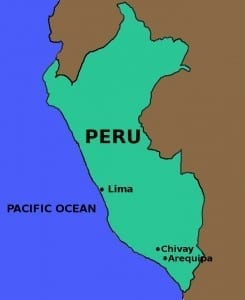 Public-sector workers in Peru are challenging a new civil service law that eliminates the right of more than 500,000 public administration workers to collectively negotiate salaries, narrows the definition of the type of unions they may establish and prevents “essential service” unions from striking (without defining essential services). The law also sets up a punitive annual evaluation process and provides government agencies with numerous justifications for downsizing, which public employees fear could lead to mass layoffs.
Public-sector workers in Peru are challenging a new civil service law that eliminates the right of more than 500,000 public administration workers to collectively negotiate salaries, narrows the definition of the type of unions they may establish and prevents “essential service” unions from striking (without defining essential services). The law also sets up a punitive annual evaluation process and provides government agencies with numerous justifications for downsizing, which public employees fear could lead to mass layoffs.
Congress passed Law 30057 earlier this month amid a flurry of last-minute action, surprising union leaders and progressive legislators who had crafted a compromise bill that never made it to a full vote.
When union members and their allies called for repeal of the law during peaceful marches across the country, police tear-gassed crowds, including those in Arequipa, the seat of Peru’s constitutional court. Union members are now collecting signatures to reopen congressional debate on the law and are preparing a complaint for the International Labor Organization (ILO). They also will march in July 27 rallies commemorating Peruvian independence. (Take action: Tell the president of Peru you won’t stand for the erosion of worker rights!)
In addition, public administration unions are engaging with consumer activist groups and other civil society organizations to build a shared understanding of how the law adversely impacts access to quality public services. Peruvian unions are sharing with the public how privatizing public services not only undermines quality and affordability, but also destroys public employees’ fundamental rights on the job, including access to a career path based on training opportunities.
Legislators, including a majority of the governing party, voted for the law despite concerns raised by their colleagues and public-sector unions, and the findings of an ILO technical report. The ILO found that the law suffers from an assumption that the exercise of collective rights is inherently against the public’s interest.
Peru’s public administration union federations affiliated with the Central General de Trabajadores del Peru (CGTP), along with other public-sector unions, sought dialogue with the newly formed public sector labor agency, SERVIR, after discussions about the new law began last year. Union federations affiliated with CGTP include the Intersectoral Confederation of State Workers (CITE), the Confederation of State Employees (CTE) and the National Association of State Sector Unions (UNASSE).
In coordination with global union federation, Public Service International (PSI), and the Solidarity Center, public administration workers from across Peru held forums in December 2012 to generate proposals for the law and have met regularly since, generating awareness and activism, particularly as the debates in Congress have heated up.
